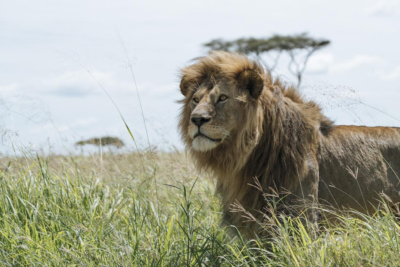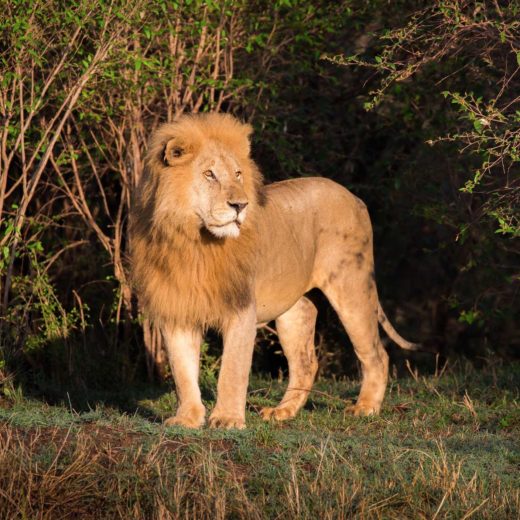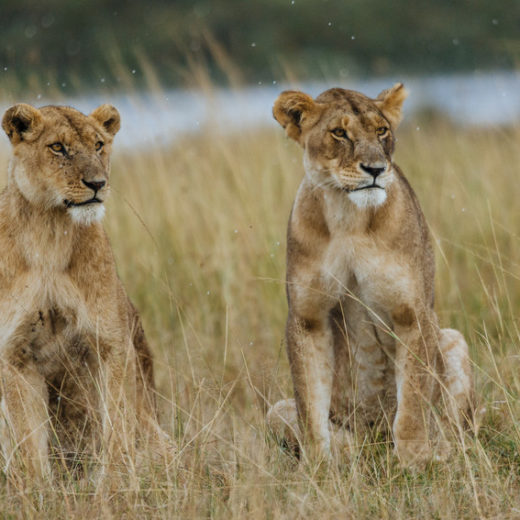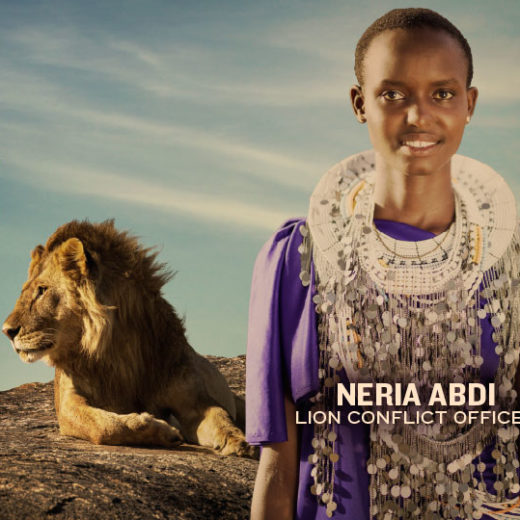
In honor of Lion Day on August 10, five conservation organizations believe lion populations in Uganda are stable but threats from habitat loss, snaring of prey for bushmeat, and human-lion conflict must be recognized and addressed immediately if the critically endangered species is to thrive.
“Uganda’s lion population has demonstrated a lot of resilience to human-induced threats, which gives us hope that the population can fully recover if the government of Uganda in partnership with conservation organizations, the private sector, and development partners strongly and actively commits to addressing those threats,” said Simon Nampindo, the Country Director of Wildlife Conservation Society (WCS), Uganda Program.
According to Uganda Wildlife Authority, the organization has carried out two nationwide censuses on Uganda’s lions from 2007 to 2017. The census of 2007 to 2010 gave an estimate of about 408 lions while that of 2011 to 2017 showed an increase to 493 lions countrywide.
A new census should establish the current figures today, said UWA’s public relations officer, Gessa Simplicious.
WCS, UWA, WildAid, the Natural Resource Conservation Network (NRCN), and the Uganda Carnivore Program (UCP) work in Uganda to conserve the country’s wildlife.
Lions are mainly found in the three largest national parks: Murchison Falls National Park (MFNP), Kidepo Valley National Park (KVNP) and Queen Elizabeth National Park (QENP).
A Wildlife Conservation Society assessment in 2006 showed that each individual lion in QENP generated about $13,500 USD per year in revenue.
“We are proud to be the stewards of Uganda’s amazing wildlife that visitors from all around the world come to see,” said Simplicious at UWA. “We shall constantly strive to make improvements, collaborate with communities and to advance the protection of our nation’s wildlife.”
Unlike elephant trophies, lions are not regularly being trafficked out of the country, said Vincent Opyene, CEO of NRCN. This has helped contribute to lion populations rebounding.
“In our investigations since 2013, we have interfaced with the trafficking of lions or lion parts in only one consignment impounded at Entebbe International Airport with lion claws,” said Opyene. “The trade in lion trophies is basically the skin, bones, and claws, and these are from lions that are victims of human-wildlife conflict, but incidences are not common.”
African lions are classified as Vulnerable on the International Union for Conservation of Nature’s (IUCN) Red List of Threatened Species. Having lost three-quarters or more of their original habitat over the past 100 years, lions are now mostly restricted to protected areas (PAs).


Uganda’s government and the conservation community are working closely together to mobilize support for effective protection and management of its system of PAs. Outside of these areas, conflict arising from the depredation of livestock by lions must be addressed.
“We’re hopeful Uganda can prevent further population decreases as long as habitat loss and human-wildlife conflict are mitigated,” said John Baker, WildAid’s Chief Program Officer. “Lions can play a positive economic role if local communities are properly included in conservation.”
Ludwig Siefert, co-founder of UCP and a member of the African Lion Working Group (ALWG), says establishing Uganda as conservation leader would support its ambitions as a tourism destination.
“With so much competition from neighboring countries, Uganda cannot afford to lose its lion population to non-sustainable land-use practices, careless industrialization or poaching,” said Siefert, who added that the ALWG will meet in Kenya this November to discuss a new lion census.
About UWA (Uganda Wildlife Authority)
Uganda Wildlife Authority (UWA) is a semi-autonomous government agency that conserves and manages Uganda’s wildlife for the people of Uganda and the whole world. This agency was established in 1996 after the merger of the Uganda National Parks and the Game Department, and the enactment of the Uganda Wildlife Statute, which became an Act in 2000. UWA is mandated to ensure sustainable management of wildlife resources and supervise wildlife activities in Uganda both within and outside the protected areas. http://www.ugandawildlife.org/
About Natural Resource Conservation Network
NRCN is a Ugandan NGO, founded in 2013 by former Uganda Wildlife Authority (UWA) prosecutor Vincent Opyene. The organization has a Memorandum of Understanding with UWA – the national mandated wildlife authority – to support them in wildlife crime investigations and prosecutions.
About Uganda Carnivore Program
The Uganda Carnivore Program works in conjunction with UWA and is dedicated to the monitoring, research, and conservation of predators in Uganda. Their current focus is primarily in the northern sector of Uganda’s Queen Elizabeth National Park, where they are working to find solutions for both the wildlife and the people of this area.
About Wildlife Conservation Society
The Wildlife Conservation Society (WCS) is a non-governmental, science-based conservation organization that works in over 50 countries around the world. Founded in 1896 as the New York Zoological Society, its mission is to conserve wildlife and ecosystems by generating and applying innovative scientific and field-based solutions to critical problems.
About WildAid
WildAid is a non-profit organization with a mission to end the illegal wildlife trade in our lifetimes. While most wildlife conservation groups focus on protecting animals from poaching, WildAid primarily works to reduce global consumption of wildlife products such as elephant ivory, rhino horn, and shark fin soup. With an unrivaled portfolio of celebrity ambassadors and a global network of media partners, WildAid leverages nearly $230 million in annual pro-bono media support with a simple message: Poaching Steals From Us All.
Stay in touch and get the latest WildAid updates.
SIGN UP


